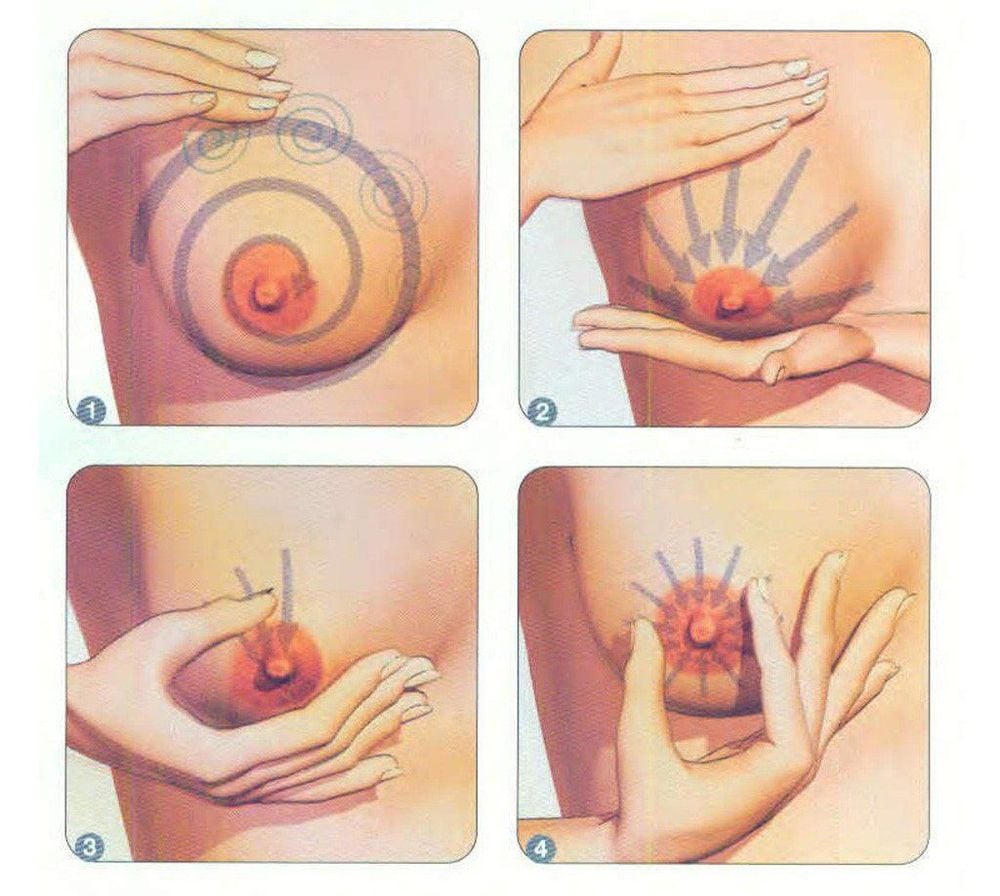This is an automatically translated article.
The article was professionally consulted by Doctor Hoang Thi Anh Tuyet - Department of Obstetrics and Gynecology, Vinmec Central Park International General Hospital.Postpartum lactation is one of the issues that many women care about, especially for first-time mothers. What factors inhibit the let-down reflex? How to make more milk? Breast milk is too much, what to do? All will be answered in the article below.
1. Find out what is the let-down reflex?
Most mothers after giving birth feel the reflex to let down milk. The let-down reflex is simply understood as when the baby suckles directly, the baby's mouth and tongue come into direct contact with the mother's nipple and areola. At this time, the pituitary gland, the endocrine gland, will produce two hormones, prolacin and oxytocin, to help stimulate the milk follicles to tighten continuously, milk will be released naturally and continuously forming a reflex to let milk, secrete milk. when the baby is breastfed.
Each feeding of the baby, on average, each breast will release milk about 2.2 times. The more the mother's milk reflexes, the more milk the baby will suckle.

Trắc nghiệm: Vì sao mẹ sinh mổ xong khó có sữa ngay?
Vì sao mẹ sinh mổ xong khó có sữa ngay là thắc mắc và lo lắng chung của nhiều sản phụ. Bài trắc nghiệm này sẽ giúp sản phụ giải đáp thắc mắc cũng như tìm hiểu được phương pháp gọi sữa về sau sinh mổ.The following content is prepared under supervision of Thạc sĩ, Bác sĩ y khoa, Tạ Quốc Bản , Sản phụ khoa , Khoa Sản phụ khoa - Bệnh viện Đa khoa Quốc tế Vinmec Phú Quốc
2. Factors inhibiting the let-down reflex in postpartum mothers
The reflex to let down milk in mothers will happen naturally. However, some mothers cannot let their milk down naturally, causing the baby not to have enough milk to suckle. The following are some factors that inhibit lactation in mothers after giving birth. Mothers can refer to avoid this situation.Stress: Postpartum women who are often stressed, tired, have many sad things will also affect natural lactation. Pressure on time: many mothers do not have enough time to breastfeed due to frequent, long hours away from the baby will also have difficulty in milking. Unstable mother's health: this will reduce breast milk production. Using too much caffeine: When the mother uses too much caffeinated beverages such as coffee, chocolate, the body will lose water, and milk will also be secreted less. In addition, this stimulant can be transmitted from mother to child through breast milk, making the baby sleepless and fussy. Smoking, drinking a lot of alcohol: these substances will make the milk glands work less efficiently, changing the taste of milk. Alcohol can be passed from breast milk to baby, affecting the health of the baby.

Use of drugs: if the mother needs to be treated for any disease during lactation that needs to be taken, it will definitely affect the milk supply for the baby. Therefore, during breastfeeding, if you need to take medicine, consider carefully before taking it. Use of oral contraceptives: in oral contraceptives containing estrogen, which reduces breast milk secretion, mothers should only use oral contraceptives for nursing mothers (progesterone).
3. How to make breast milk come down a lot after giving birth
Many mothers after giving birth do not have milk for their babies or the milk produced is not enough to breastfeed. Here are some tips to have more milk after giving birth, invite mothers to refer to it when needed:
When pumping, you need to have a comfortable mentality, pump in a familiar place. While pumping, you can both pump and watch TV with entertainment programs, listen to music, etc. to be psychologically comfortable. Do not stare at the breast pump to see if the milk comes out a lot or not. This will put pressure on the mother to inhibit the reflex to let down milk after birth. Keep your baby's belongings nearby, or watch your baby suck, imagining he's suckling directly. This will stimulate more milk to come down. While breastfeeding on one side, you can pump or express milk from the other breast at the same time. Feed your baby at the right time: feeding your baby at the right time and continuously will stimulate more milk production. Breast milk will recover 40% after 1 hour, 75% after 2 hours from the baby's last feeding. In the first month after birth, it may be difficult for the baby to suckle because the nipples are too big. Mothers should be persistent every day to feed the baby continuously so that the let-down reflex is stronger.

Breast massage: The massage will stimulate the nerves around the areola and nipple. Each massage should take place between 1-2 minutes, if in only 30 seconds the milk has come down, mothers can express or pump milk, no need to massage more. How to massage: mothers use 2 palms to gently massage 2 breasts for about 30 seconds, then use 5 fingertips to pinch and gradually withdraw hands to areola. The massage force should not be too strong or too light. When the milk comes down, stop.
4. Mother's milk down too much what to do?
While some breastfeeding mothers are losing sleep and eating because they do not have enough milk to breastfeed, some mothers are worried when their breast milk is abundant. Right here we will tell you some good tips to relieve this anxiety.Let the baby breastfeed on one side until the baby wants to release the breast, if the baby sucks for less than 15-20 minutes on one side and within 1-2 hours after the baby wants to feed again, then continue to breastfeed at the feeding time. at least 15-20 minutes in advance. Do not continue to feed the baby with the other breast if the baby does not want to feed again. Because when the baby has received enough milk needed with only one breast. If the other breast is engorged, mothers can "discharge" less to reduce the feeling of breast engorgement, but should not empty the whole breast. Expressing less milk: When the milk comes in too much, flows quickly and strongly, mothers can squeeze some milk out and then feed the baby. The expressed milk can be stored in the refrigerator for the baby to bottle or stir the powder for the baby to eat. Avoid pumping or expressing milk unless absolutely necessary. Only when the breasts are really tight should the mother pump/express milk to reduce the amount of milk. Because when you express milk, your body will automatically understand that it has to "produce" more of the lost milk. Drink ginseng tea before bed: in the composition of ginseng contains natural components of the hormone estrogen, which helps to reduce lactation. Do not use too much ginseng to avoid loss of milk for the baby. Give your baby a pacifier: The more your baby sucks on the breast, the more it will stimulate the milk glands to produce more milk. So you can give your baby a pacifier to reduce the stimulation of the milk glands. Usually the problem of too much milk will be overcome gradually as the baby gets older, because when the baby gets older, there will be many other sources of nutrition instead of just breast milk. Therefore, the demand for breast milk is also reduced, the milk glands will not be stimulated too much to produce more milk.
Please dial HOTLINE for more information or register for an appointment HERE. Download MyVinmec app to make appointments faster and to manage your bookings easily.














